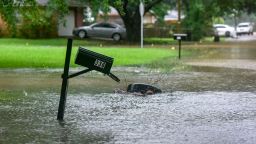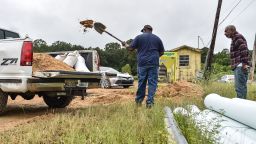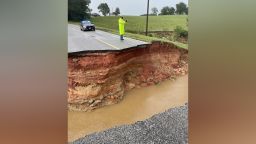The residents of Jackson, Mississippi – already dealing with flooded streets – are now also faced with another problem: There isn’t enough water to flush toilets or fight fires due to issues at the main water treatment facility, according to Mississippi Gov. Tate Reeves.
Because of the failure to produce running water, the state will help distribute drinking and non-drinking water to up to 180,000 people as crews work to get the water treatment plant back online, the governor said.
Until the system is fixed, there will not be reliable running water at scale, Reeves said.
The governor said he was told Friday that it was a “near certainty that Jackson would fail to produce running water sometime in the next several weeks or months” if improvements were not made in the system, and officials began developing water distribution plans.
“All of this was with the prayer that we would have more time before their system ran to failure,” Reeves said. “Unfortunately, that failure appears to have begun today.”
The governor added that he will sign an emergency declaration for the city and create an incident command center to distribute the water.
The mayor of Jackson also declared a water system emergency Monday, saying that “the flooding of the Pearl River … created problems with treating water at the O.B. Curtis Water Plant leading to a temporary decrease in the production of water throughout the City of Jackson.”
As a result, officials announced that all Jackson Public schools will shift to virtual learning Tuesday.
The water crisis comes after record-setting rain resulted in the the Pearl River cresting and flooding streets. City officials earlier Monday said they were “cautiously optimistic” as the Pearl River appeared to be cresting without water spilling into residents’ homes, according to a spokesperson for the mayor.
The city – still dealing with the toll of historic flooding in 2020 – was bracing for damage and Mayor Chokwe Antar Lumumba told residents on Saturday to “get out now.”
But despite the flooding, there were “no reports of water in any homes” Monday, Melissa Payne, the mayor’s spokesperson, told CNN. “The shelter remains open for those who are concerned about the water … but we expect to see the water falling over the next couple of days,” Payne said.
The river was predicted to crest Monday morning at 35.5 feet – just shy of major flood stage, which is 36 feet at this point along the river, according to the United States Geological Survey. But as of late Monday morning, the river had been sitting around 35.35 feet for several hours.
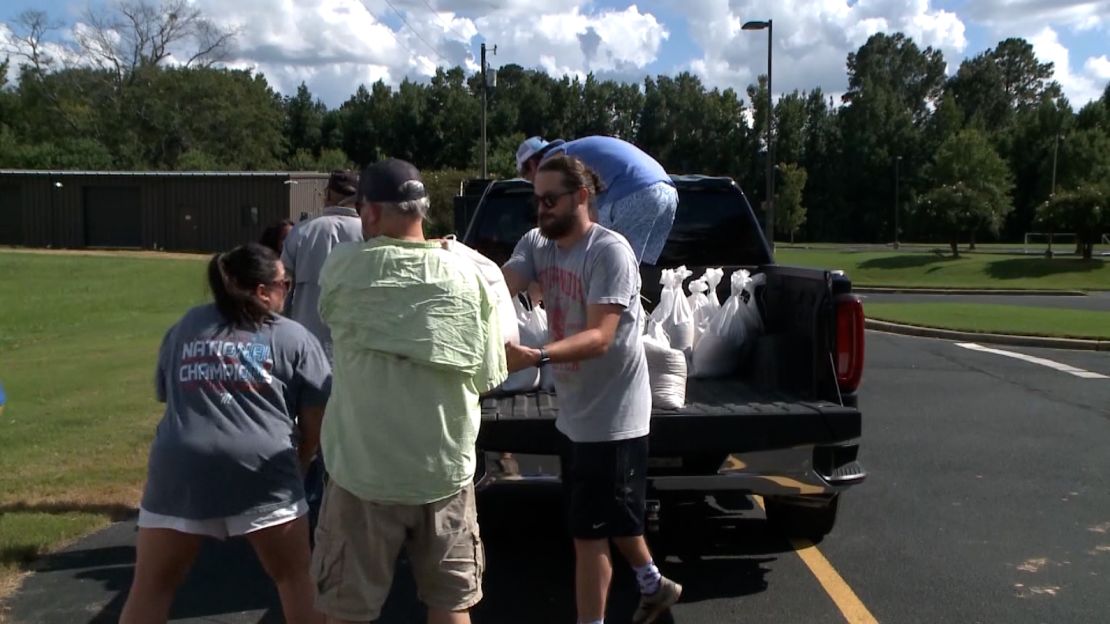
Some roads around schools and neighborhoods on the northeast side of Jackson were impassable Monday morning, according to a CNN team there. But the water was receding in the area, according to Hinds County Emergency Operations Deputy Director Tracy Funches.
Communities facing the highest risk were the same ones affected by the flood in February 2020 – hence the dire warnings from authorities – when the Pearl River reached its third-highest crest on record at 36.7 feet, flooding several neighborhoods in northeast and downtown Jackson, damaging some homes beyond repair and leaving extensive amounts of debris.
Jackson resident Shawn Miller’s home suffered $60,000 in damage during the 2020 flood, he told CNN, and it cost thousands more to relocate his family for five for six months on his own dime.
Miller thought his family took the right precautions to prevent water from coming in, he said, but it wasn’t enough.
“You can’t control it. I had 50 sandbags, and it didn’t do nothing,” Miller said, adding he “came back and still had about a foot in the water damage inside the home.”
Water was once again on the street outside his home Sunday, and he was wary.
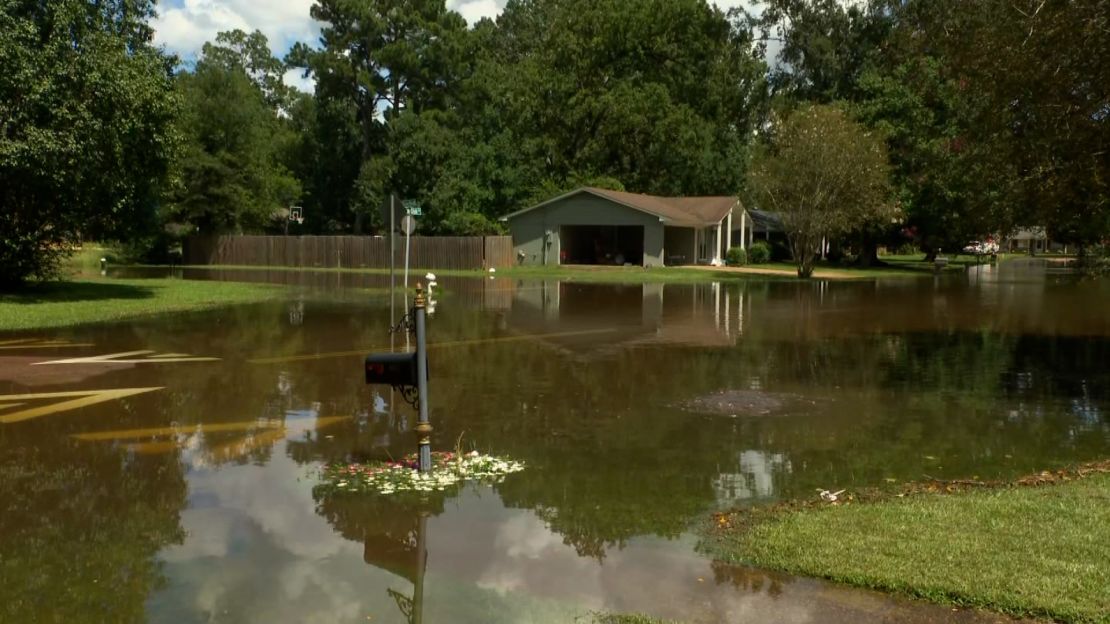
A city more prepared this time
Gov. Reeves declared a state of emergency Saturday due to the rising river waters and urged residents to remain calm. The state began work assessing water levels along the river using drones and deployed more than 100,000 sandbags, according to the declaration.
“The state of Mississippi is as prepared as possible for this flooding,” Reeves said.
Authorities prepared for potential search and rescue operations, clearing areas of debris, distributing sandbags to residents, and providing public transportation to help with evacuations, according to Lumumba.
The mayor said officials were better equipped this time around and able to better instruct residents on how to prepare for the flood by taking pictures of their property and locating their critical documents.
“Whether or not we have the same number of homes that are affected this time, for those homes that are affected, that’s a handful too many that can be impacted,” the mayor said previously. “So, we want to make sure that we have the mitigation after we have recovery, that this no longer has to be commonplace in the city of Jackson.”
Miller agreed government officials did a better job informing residents of the flooding threat than in 2020, when he was surprised to come home to find water coming down the street and his neighbor packing up.
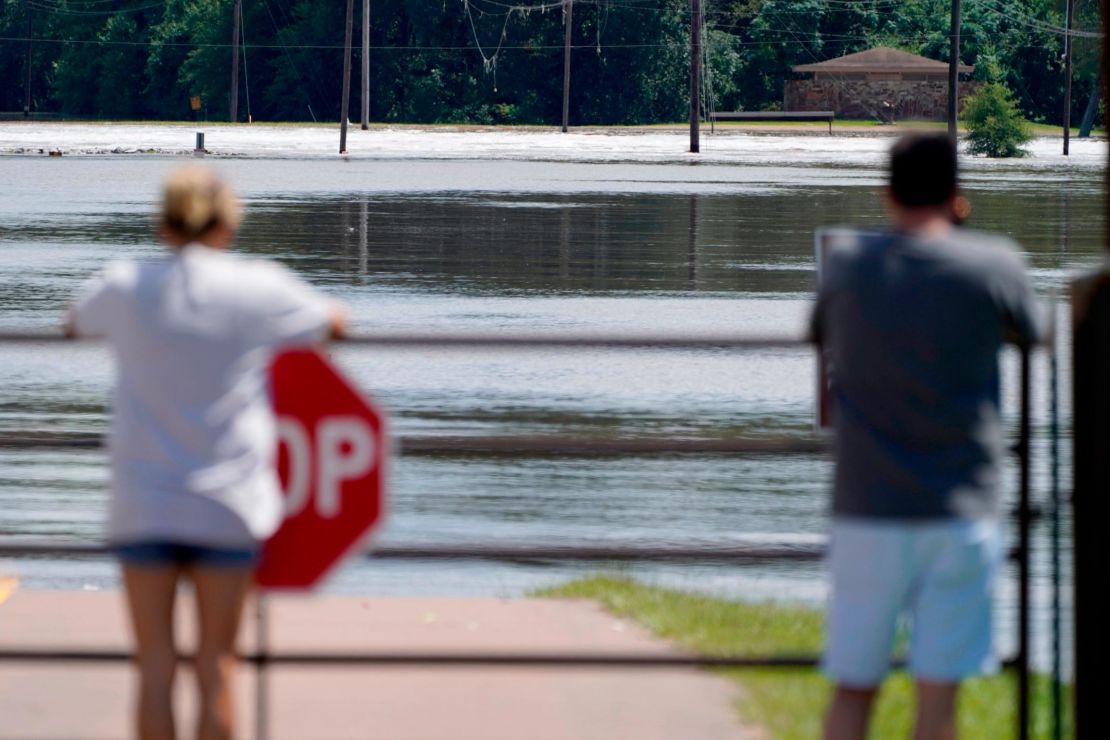
More rain is becoming ‘commonplace’ and it’s taking a toll, mayor says
Residents in Jackson and other parts of Mississippi saw heavy rains for several days last week as a slow-moving weather system brought flooding which forced evacuations, washed away roads, derailed a train, soaked homes and prompted numerous rescues.
“Our residents have been inundated with persistent rain over the last few days. So we already have been contending with flash flooding, and so it is quite a toll on our residents,” Lumumba said.
Flood warnings remain in effect until further notice along the Pearl River, including in Jackson, Mississippi, according to the National Weather Service office in Jackson.
By Sunday evening, the river levels were at 35.28 feet and were on track to crest at 35.5 feet Monday morning. At that height, water would be flooding some Northeast Jackson streets close to the river as well as dozens of streets in downtown Jackson, and approaching homes in the Hightower area, according to NWS.
“Quite honestly this has become commonplace. We’re experiencing more rain in our rainy season, hotter summers and colder winters, and it has taken a toll on our infrastructure,” Lumumba said.
CNN’s Nadia Romero, Melissa Alonso, Michelle Watson and Hannah Sarisohn contributed to this report.


